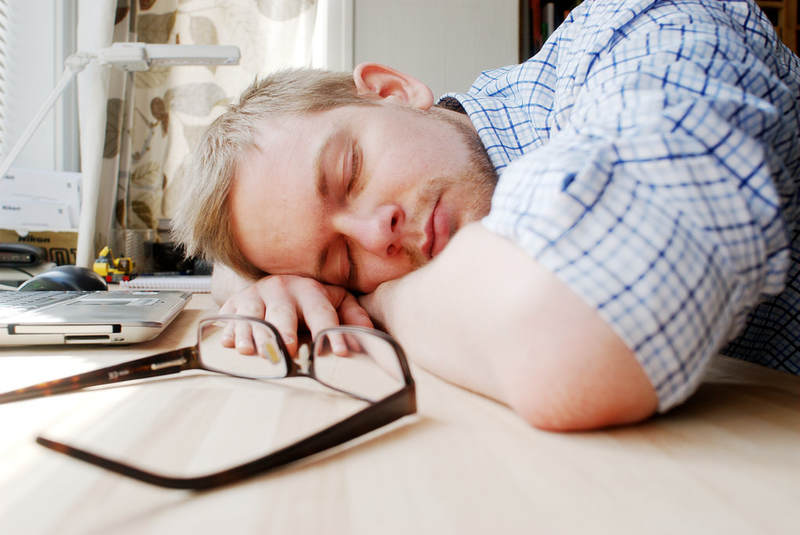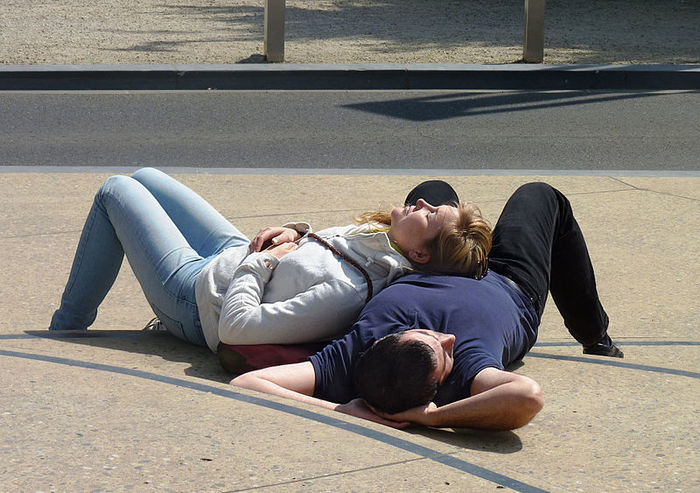Less Sleep Leads to Lowered Creativity and Reduced Attention Spans in Young Adults
It is quite common for young adults, particularly college students, to endure nights without much sleep, usually due to projects, tests, or other social activities. As a result, they often spend the next few days catching up on sleep. A new study published by Dr. Michael Scullin, Assistant Professor and head of Baylor's Sleep Neuroscience and Cognition Laboratory at Baylor University, found that students experiencing such extreme variabilities in sleep were more likely to have decreased creativity and reduced attention spans.
Sleep is a necessary, instinctual behavior found in the majority of animals, particularly humans. On average, humans will spend about a third of their lives asleep, during which they will be undergoing a period of rest and renewal. Unfortunately, the current college and workforce culture can appear to encourage foregoing adequate amounts of sleep in order to get more work done. It is common among college students to “brag” about how little sleep one got the night before a huge deadline or test. This unhealthy practice, in turn, can lead to students sleeping longer than usual after sustaining a night of abnormally short sleep.
Sleep is a necessary, instinctual behavior found in the majority of animals, particularly humans. On average, humans will spend about a third of their lives asleep, during which they will be undergoing a period of rest and renewal. Unfortunately, the current college and workforce culture can appear to encourage foregoing adequate amounts of sleep in order to get more work done. It is common among college students to “brag” about how little sleep one got the night before a huge deadline or test. This unhealthy practice, in turn, can lead to students sleeping longer than usual after sustaining a night of abnormally short sleep.
This sleep study followed 28 undergraduate interior design students, tracking sleep time and quality over a period of seven days. Students’ sleep patterns were recorded via FitBit-like wristbands that tracked bodily movement in bed. When subjects appeared to be immobile for an extended period of time, they were assumed to be asleep. Conversely, when subjects exhibited large amounts of activity, they were presumed to be awake. By examining a self-reported sleep diary and comparing pre- and post-experiment evaluations testing cognitive functions, researchers found that overall, students believed that they were getting roughly four more hours of sleep each week than they really were and that almost 80% of students slept less than seven hours at least three times a week. Considering that the National Sleep Foundation recommends seven to nine hours of daily sleep for young adults, the majority of these students are experiencing some level of sleep debt.
To test creativity, subjects were tasked with connecting related groups of words with another word. A creative answer key was created, and subjects were scored based on the number of correct creative answers they presented. To test attention, subjects were evaluated by performing two different tasks simultaneously. They were asked to memorize several series of different spatial distribution of squares and make an objective decision about a different image. At the end of the test, subjects were required to reconstruct the distribution of squares and scored based on accuracy. In both the creative and attention tests, researchers discovered that students who accumulated days with less sleep during the study had markedly lower scores than students who received adequate sleep.
The next time someone might consider pulling an all-nighter to finish a project or study for a test, it might be better to rethink that decision and opt for a good night’s sleep instead. A couple more hours of sleep each week does not hurt and can only help!
To test creativity, subjects were tasked with connecting related groups of words with another word. A creative answer key was created, and subjects were scored based on the number of correct creative answers they presented. To test attention, subjects were evaluated by performing two different tasks simultaneously. They were asked to memorize several series of different spatial distribution of squares and make an objective decision about a different image. At the end of the test, subjects were required to reconstruct the distribution of squares and scored based on accuracy. In both the creative and attention tests, researchers discovered that students who accumulated days with less sleep during the study had markedly lower scores than students who received adequate sleep.
The next time someone might consider pulling an all-nighter to finish a project or study for a test, it might be better to rethink that decision and opt for a good night’s sleep instead. A couple more hours of sleep each week does not hurt and can only help!
Featured Image Source: "366 • 149 • Last day before final exam" by Sven Halvor Halvorsen via CC BY-NC-ND 2.0
RELATED ARTICLES
|
Vertical Divider
|
Vertical Divider
|
Vertical Divider
|






